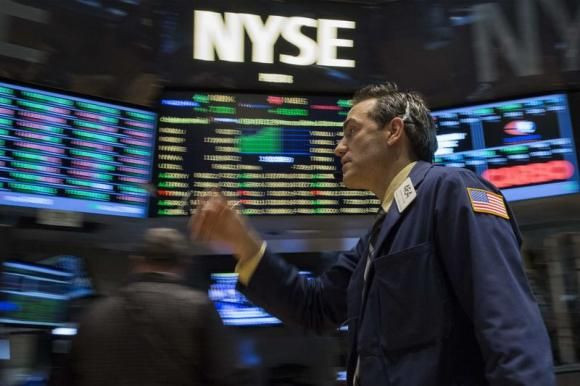Dow Jones Industrial Average Turns Positive Following Wild Swings

U.S. stocks turned positive Thursday, following the previous session’s steep losses, as better-than-expected economic reports eased concerns about the European debt crisis hurting the U.S. economy. Since mid-September shares of U.S.-listed companies have plunged by more than 7 percent, and many investors are ready for some relief from the downdraft.
A string of weak economic data coming out of the U.S. recently has caused growing fears about whether a global slowdown is beginning to hit the U.S. economy; however, some Wall Street professionals say the market -- which this summer set a series of record highs -- was already heading for a correction.
“The market was headed for a correction and it’s using the European situation as an excuse,” Peter Cardillo, chief market economist at Rockwell Global Capital, said. “Now that we’re near a full-blown correction, the market should begin to level off.”
A big issue causing panic is the ongoing debt crisis in Europe. The stock market in Greece, one of Europe's most financially stressed economies, plunged 9 percent on Wednesday, and one Thursday 10-year yields on government bonds spiked to 8.78 percent. Bond yields reflect how much issuers of debt must pay investors to lend them money; higher yields reflect investor hesitancy to buy bonds.
The U.S. Treasury Department, meantime, warned that recent actions by the European Central Bank may not be enough to fight off deflation in the troubled and heavily indebted nation. After Athens' tumultuous week, the ECB agreed to boosts liquidity to Greek lenders.
The CBOE Volatility Index (VIX), considered the best gauge of fear in the U.S. stock market, spiked as high as 31 on Wednesday after hovering around 15 for much of the summer. But by Thursday the VIX had edged down to 26 in early afternoon trading.
Better-than-expected jobless claims numbers did little to help investor sentiment in early trading Thursday. The S&P 500, a gauge of 500 large corporation stocks, briefly turned positive after inflation hawk James Bullard, president of the St. Louis Federal Reserve Bank, told Bloomberg News the U.S. central bank should consider postponing the end of its quantitative easing program, which is scheduled to end this month. Tensions were also slightly eased after Philadelphia Fed President Charles Plosser said the recent financial tailspin was not severe enough to warrant help from the central bank.
At 2:15 p.m. EDT, the Dow Jones industrial average, which measures shares of the nation's 30 largest publicly traded industrial corporations, was up 17 points, or 0.11 percent, to 16,159.46. The S&P 500 Index rose 6.28 points, or 0.34 percent, to 1,88.77, while the Nasdaq Composite, added 12.31 points, or 0.24 percent, to 4,225.40.
© Copyright IBTimes 2024. All rights reserved.






















